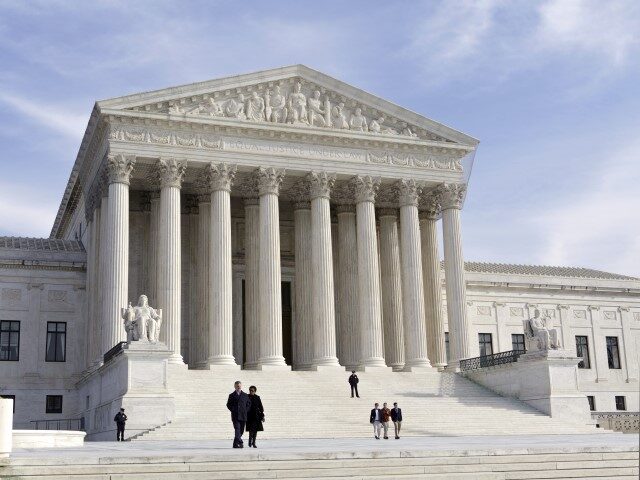The Supreme Court on Thursday ruled a person accused by the Securities and Exchange Commission of civil fraud has a right to a trial by jury before a federal judge, rejecting the agency’s authority to bring enforcement actions and assess fines through internal tribunals.
The ruling is a significant blow to what has become in recent years one of the primary enforcement mechanisms against fraud in cases brought by the S.E.C., which regulates securities markets. The agency’s practice of dragging those accused of securities fraud before in-house tribunals, often adjudicated by the very agency bringing the accusation or by administrative law judges who are often seen as rubber stamps for the agency, violates the right to a jury trial, Chief Justice John G. Roberts Jr. wrote for a six-justice majority opinion.
“A defendant facing a fraud suit has the right to be tried by a jury of his peers before a neutral adjudicator,” the chief justice wrote.
The S.E.C. was purportedly authorized by Depression-era securities laws to have the choice to bring antifraud lawsuits in federal courts or to adjudicate its accusations itself. In the Dodd-Frank financial regulatory reform law passed in 2010, Congress extended the S.E.C.’s authority to bring civil suits in its own tribunals to accusations against unregistered investment advisers.
When the S.E.C. adjudicates fraud accusations in-house, there are no juries to act as fact finders, no life-tenured federal judges presiding, and the litigation is governed by a different set of rules about evidence, procedure, and discovery. The central issue in Securities and Exchange Commission v. Jarkesy, No. 22-859, was whether these administrative tribunals violate the Seventh Amendment’s guarantee of a jury trial in “suits at common law.”
The S.E.C. contended that administrative proceedings do not require juries or presiding federal judges because they are not private lawsuits under common law but efforts to protect so-called “public rights” created statutes. They further argued that many agencies conduct adjudications without juries, with over two dozen agencies authorized to impose penalties administratively.
The court rejected these arguments, reading the public rights exception to the right to a jury trial narrowly. The court ruled that it applies only to matters that have historically been determined exclusively by the executive and legislative branches, such as revenue collection, customs enforcement, immigration, and payments of benefits. Congress cannot override the right to a jury trial by simply authorizing a government agency to bring cases in-house. Similarly, it is not enough for the government to show that allowing agencies to bring fraud cases in-house would increase efficiency or make it easier for the agencies to pursue fraud.
“Otherwise, evading the Seventh Amendment would become nothing more than a game, where the Government need only identify some slight advantage to the public from agency adjudication to strip its target of the protections of the Seventh Amendment,” Roberts wrote.
The case could have implications constraining the authority of other agencies to adjudicate accusations of wrong-doing before their own in-house tribunals.
The case centered on George Jarkesy, a hedge fund manager accused of deceiving investors. The S.E.C. pursued a civil enforcement action against Jarkesy through an administrative law judge, who ruled against him. Following an internal appeal, the S.E.C. ordered Jarkesy and his company to pay a $300,000 civil penalty and disgorge $685,000 in alleged illicit gains.
Jarkesy appealed to the U.S. Court of Appeals for the Fifth Circuit in New Orleans. A divided three-judge panel ruled against the SEC on three grounds, all potentially disrupting the enforcement of not only securities laws but also a wide array of other regulations.
This ruling is among several this term challenging the power of administrative agencies, a long-standing focus of the conservative legal movement. Last month, the Court upheld the constitutionality of the Consumer Financial Protection Bureau’s funding. Earlier this year, the Court heard arguments regarding the Chevron doctrine, a critical administrative law principle mandating judicial deference to agency interpretations of ambiguous statutes. That case remains undecided.
The case is Securities and Exchange Commission v. Jarkesy, No. 22-859 in the Supreme Court of the United States.

COMMENTS
Please let us know if you're having issues with commenting.